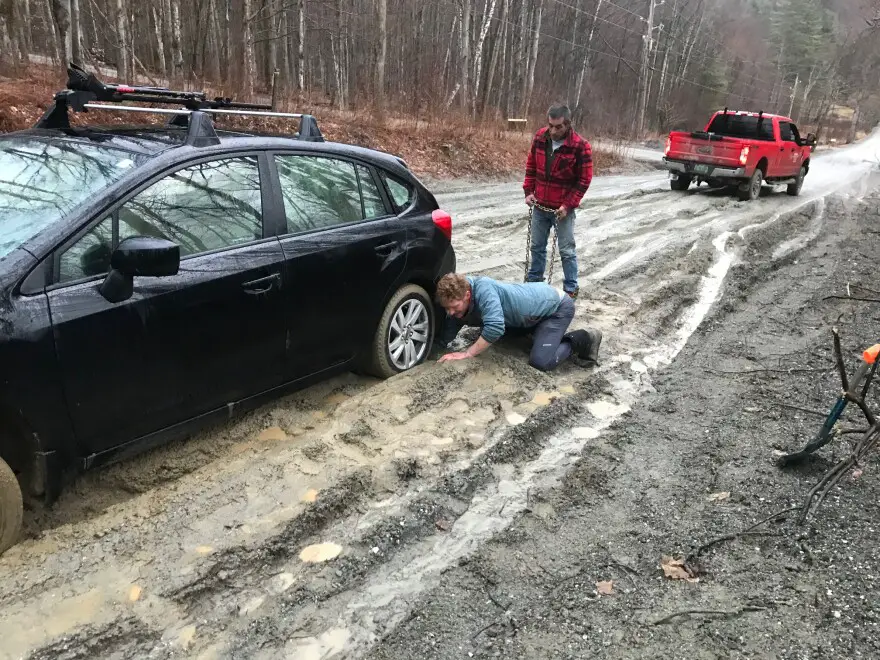Yes, you can drive if your muffler falls off but it is not recommended. Driving without a muffler can lead to noise pollution, exhaust leaks, Muffler Fell off Can I Still Drive and potential exhaust fume exposure inside the car.
Additionally, it may also impact the performance of your vehicle. It’s best to have the issue fixed before driving to ensure safety and compliance with local regulations. If the muffler has detached, Muffler Fell off Can I Still Drive it’s important to assess the extent of the damage and consult a professional to avoid further complications. Muffler Fell off Can I Still Drive
Possible Consequences
When a muffler falls off a vehicle, the consequences can be severe. Ignoring this issue and continuing to drive without addressing it can lead to immediate hazards and long-term damages. It is crucial to understand the potential risks associated with driving with a fallen-off muffler to make an informed decision about whether you should continue driving your vehicle.
Immediate Hazards
- Noise Pollution: Excessive noise due to the absence of a muffler
- Elevated Exhaust Exposure: Increased health risks from exhaust fumes entering the vehicle
- Potential Traffic Violation: Driving with a loud vehicle may lead to legal consequences
Long-term Damages
- Exhaust System Damage: Continued driving may harm the exhaust system
- Undercarriage Compromises: Vulnerability to road debris and damage to the vehicle’s undercarriage
- Engine Performance: Adverse effects on engine efficiency and power

Muffler Fell off Can I Still Drive
Assessing The Situation
When the muffler falls off your vehicle, it can be a concerning situation, but it’s important to assess the damage before deciding whether it’s safe to continue driving. There are a few key steps to take to determine the condition of your vehicle and ensure it’s safe to operate.
Determine Muffler Condition
If your muffler has fallen off, the first step is to determine its condition. Check for any visible damage such as dents, rust, or corrosion that may impact its ability to function properly. Inspect the muffler for holes, cracks, or other signs of significant damage. It’s essential to ensure that the muffler is intact and not posing a hazard to other drivers or pedestrians.
Look For Other Damages
Aside from the muffler, it’s crucial to inspect the surrounding areas of the vehicle for any additional damages. Look for loose or dangling parts that may have been affected by the muffler’s detachment. Check the exhaust system for any compromised components, and assess the undercarriage for any scrapes, dents, or other potential issues that could affect the vehicle’s drivability.
Considerations Before Driving
Before driving with a muffler that has fallen off, consider the potential safety risks and legal implications. It’s crucial to assess the overall condition of the vehicle and consult a mechanic for a thorough inspection before making a decision. Driving with a malfunctioning muffler can lead to excessive noise levels and could potentially impact the performance of the vehicle.
Safety Concerns
Before deciding whether or not to drive when your muffler has fallen off, it is crucial to consider the safety implications. Driving with a missing or damaged muffler can potentially put you and others at risk. Here are some safety concerns to keep in mind:
– Increased Noise Levels: A muffler’s primary function is to reduce the noise produced by your vehicle’s exhaust system. Without a muffler, the noise from the exhaust can become significantly louder. This can be not only annoying but also distracting to other drivers and pedestrians.
– Exposure to Toxic Fumes: Mufflers play a crucial role in redirecting and filtering harmful exhaust gases away from the vehicle and its occupants. When the muffler is missing or damaged, these gases may not be properly directed, increasing the risk of exposure to carbon monoxide and other toxic substances.
– Impact on Vehicle Performance: A muffler’s absence can lead to a change in backpressure within the exhaust system. This alteration can affect the engine’s performance, potentially leading to decreased fuel efficiency, overheating, or even engine damage.
– Possible Damage to Other Components: A loose or missing muffler may cause vibrations or dragging, which can damage other parts of your vehicle, such as the exhaust pipe, catalytic converter, or suspension system. This damage can result in costly repairs and further compromise your safety on the road.
Legal Implications
Aside from safety considerations, it’s important to understand the legal implications of driving without a muffler. Each country, state, or province may have its own specific regulations regarding vehicle noise levels and exhaust systems. Here are some legal aspects to consider:
– Noise Violations: Driving with a missing or damaged muffler can result in noise violations. Law enforcement agencies typically enforce specific noise level limits to ensure public tranquility. Violating these regulations may lead to fines or citations.
– Emissions Standards: In many regions, vehicles must comply with emissions standards set by local authorities. A missing or damaged muffler can lead to increased exhaust emissions, potentially causing your vehicle to fail emissions tests. This could result in additional expenses to repair the exhaust system or even the inability to renew your vehicle registration.
– Insurance Coverage: Depending on your insurance policy, driving with a known mechanical issue like a missing muffler may affect your coverage. It’s essential to review your policy to understand if there are any exclusions related to such circumstances.
Considering these safety concerns and legal implications is crucial before deciding to drive with a fallen-off muffler. While the urgency of the situation may tempt you to continue driving, it’s important to prioritize your own safety, abide by the law, and take necessary actions to address the issue promptly.

Muffler Fell off Can I Still Drive
Temporary Solutions
When your muffler falls off, it can be a frustrating and potentially dangerous situation. However, there are temporary solutions that can help you get back on the road safely. In this section, we will discuss two common methods – using muffler clamps and using exhaust tape.
Using Muffler Clamps
If your muffler has detached from the exhaust pipe, using muffler clamps can provide a quick and temporary fix. Muffler clamps are designed to hold the muffler in place and prevent it from dragging on the ground. Here’s how you can use them:
- First, ensure that the muffler and the exhaust pipe are clean and free from dirt and rust. This will help the clamps grip better.
- Position the muffler back onto the exhaust pipe, aligning it properly.
- Using a wrench, tighten the muffler clamps around the joint where the muffler and the exhaust pipe meet. Make sure the clamps are secure but not overly tightened.
- Double-check the tightness of the clamps to ensure that the muffler is firmly held in place.
Using muffler clamps as a temporary solution can help keep your muffler secure while you find a more permanent fix.
Using Exhaust Tape
Another option for temporarily fixing a fallen-off muffler is to use exhaust tape. This heat-resistant tape is specifically designed for sealing and patching exhaust systems. Follow these steps to use exhaust tape:
- Clean the surfaces of both the muffler and the exhaust pipe to ensure a good adhesive bond.
- Wrap the exhaust tape tightly around the joint where the muffler and the exhaust pipe connect. Make sure to cover any gaps or openings.
- Smooth out the tape to remove any wrinkles or air bubbles. This will enhance the tape’s effectiveness in sealing the connection.
- Allow the tape to set and cure for the recommended time specified on the product packaging. This will ensure a proper seal.
Using exhaust tape as a temporary solution can provide a secure seal for your muffler until you can arrange for a permanent repair.
Seeking Professional Help
If you find yourself in a situation where your muffler has fallen off while driving, it is crucial to seek professional help immediately to avoid further damage to your vehicle. Continuing to drive without a muffler not only compromises the performance of your car but also poses safety risks. In this section, we will discuss two options for seeking professional assistance—finding a nearby mechanic and calling a towing service.
Finding A Nearby Mechanic
Finding a nearby mechanic who specializes in exhaust system repairs is the first step towards resolving your muffler problem. A qualified mechanic will not only have the necessary expertise but also the tools to fix the issue promptly. Follow these steps to find a nearby mechanic:
- Take out your phone and open your preferred search engine.
- Type “exhaust system repair mechanic near me”.
- Hit the search button and browse through the results.
- Make sure to consider customer reviews and ratings to gauge their reliability.
- Contact the mechanic and explain your situation to set up an appointment.
Calling A Towing Service
If you are unable to locate a nearby mechanic or if there are additional issues with your vehicle that make driving unsafe, calling a towing service is your best option. Towing services are equipped with specialized trucks and equipment to transport your car to a qualified mechanic safely. Follow these steps when calling a towing service:
- Take out your phone and open your contacts.
- Find the contact for a reputable towing service.
- Ensure they offer emergency services and specialize in towing damaged vehicles.
- Provide them with your location and a brief explanation of the situation.
- Confirm the estimated time of arrival and any associated costs.
By seeking professional help from either a nearby mechanic or a towing service, you can ensure that your muffler issue is addressed properly. Remember, driving without a muffler is not only detrimental to your car’s performance but also hazardous. Act swiftly to resolve the problem and get back on the road safely.
Preventing Future Issues
If your muffler fell off, it’s not safe to drive, as it can cause further damage and noise pollution. It’s best to have a professional inspect and repair it to prevent any future issues while driving. Driving without a muffler can also lead to legal violations due to excessive noise.
Regular Inspection
Regular inspection is key to preventing future muffler issues. Make it a habit to visually inspect your muffler and exhaust system every few months or after driving in rough road conditions. Look for any signs of damage, such as rust, cracks, or loose connections, as these can indicate potential problems. Pay attention to any unusual noises or vibrations coming from the muffler, as these could be signs of damage that require immediate attention.
Proper Maintenance
Proper maintenance is crucial to ensure the longevity of your muffler and prevent it from falling off in the future. One essential maintenance task is to have your muffler cleaned regularly. This removes any built-up dirt or debris that can contribute to corrosion or blockages. Additionally, schedule regular maintenance checks with a trusted mechanic to properly inspect and service your muffler. This helps to catch any potential issues early on, preventing them from escalating into major problems.
Regular Inspection
To ensure your muffler stays in top shape, there are a few steps you can take. First, avoid driving over rough roads or off-road terrains excessively, as this can put stress on your muffler and increase the risk of it falling off. Secondly, when parking, try to avoid tall curbs or parking on uneven surfaces that could cause damage to the bottom of your vehicle. Additionally, be mindful of the weight you carry in your vehicle, as overloading can strain the exhaust system. Taking these preventative measures can go a long way in prolonging the lifespan of your muffler.
Proper Maintenance
In addition to regular inspections, proper maintenance is crucial to prevent future muffler issues. This includes replacing any worn-out or damaged parts, such as clamps or hangers, as soon as they are identified. It’s also important to address any exhaust leaks promptly, as these can contribute to muffler damage. Regularly cleaning the muffler and exhaust system helps remove dirt and debris that can accelerate corrosion. By following these maintenance practices, you can significantly reduce the risk of your muffler falling off in the future.
Conclusion
By incorporating regular inspection and proper maintenance into your routine, you can mitigate the risk of your muffler falling off and ensure the optimal performance of your vehicle’s exhaust system. Take the time to visually inspect your muffler, schedule regular maintenance checks, and follow preventative measures to keep your muffler in good condition for years to come. Remember, a well-maintained muffler not only contributes to a quieter ride but also helps protect the environment by reducing harmful emissions. Don’t wait for problems to arise; take action now to prevent future issues with your muffler.

Muffler Fell off Can I Still Drive
Frequently Asked Questions Of Muffler Fell Off Can I Still Drive
Can I Still Drive If My Muffler Fell Off?
Yes, you can still drive if your muffler fell off, Muffler Fell off Can I Still Drive but it is not recommended. Driving without a muffler can be loud, and it may result in more serious damages to your car’s exhaust system. It is best to fix the issue as soon as possible to prevent further problems. Muffler Fell off Can I Still Drive
What Should I Do If My Muffler Fell Off While Driving?
If your muffler fell off while driving, there are a few steps you can take. First, pull over to a safe location and assess the situation. If possible, try to secure the muffler temporarily to prevent any additional damage. Then, Muffler Fell off Can I Still Drive contact a professional mechanic to have the muffler properly repaired or replaced.
Is It Dangerous To Drive With A Fallen Muffler?
While it is not immediately dangerous to drive with a fallen muffler, it is not ideal. Driving without a muffler can lead to increased noise levels, potential exhaust fume leaks, and other damage to your car’s exhaust system. It is recommended to have the issue resolved as soon as possible to ensure the proper functioning of your vehicle. Muffler Fell off Can I Still Drive
Conclusion
If your muffler has fallen off, it is not recommended to continue driving. This could lead to further damage to your vehicle and potentially put you and others at risk. It is best to safely park your car and contact a professional to assess the situation and make the necessary repairs. Muffler Fell off Can I Still Drive
Neglecting this issue could result in costly repairs in the future. Always prioritize your safety and the well-being of your vehicle. Muffler Fell off Can I Still Drive.

